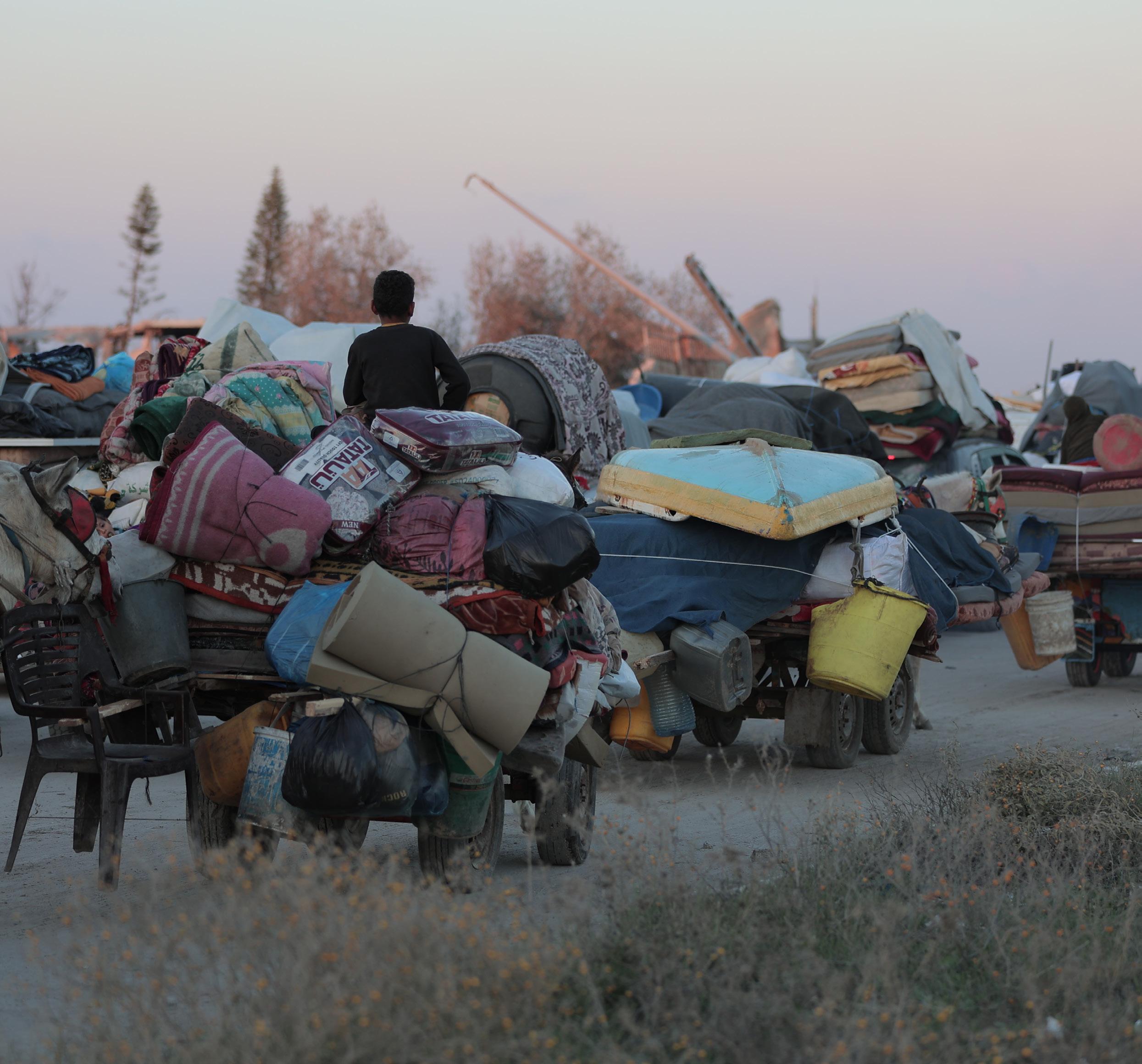

“It just doesn’t feel real… How can something so horrible be real?”
Shiraz Saleem Intensivist Al-Aqsa Martyrs Hospital



“It just doesn’t feel real… How can something so horrible be real?”
Shiraz Saleem Intensivist Al-Aqsa Martyrs Hospital
In Gaza today, children are being born into a world without hospitals. Families shelter in makeshift tents and shattered buildings, caring for the injured without pain relief, often without doctors, and without any certainty that their loved ones will live.
After sixteen months of relentless conflict, Gaza’s health system lies in ruins. Over 80% of hospitals and health facilities have been damaged or destroyed. Exhausted healthcare workers, under constant threat, are doing the impossible - saving lives in tents, makeshift shelters, and the last fragments of hospitals, often by the light of their mobile phones.
Our newsfeeds are filled with harrowing stories of suffering. One, reported by journalist Clayton Dalton in The New Yorker, tells of intensivist Shiraz Saleem working amid the devastation at what remains of Al-Aqsa Martyrs Hospital:
“In the pediatrics ward, a cramped space that had cartoon characters painted on the walls, a nineyear-old named Mariam cried softly as another of my colleagues examined her. Her hair was neatly braided and tied with a yellow scrunchie. Mariam had lost an arm to amputation after an air strike, and shrapnel had slashed a hole between her bladder and her rectum. She had already undergone five surgeries. On a bed next to her lay a three-year-old boy, who had needed surgery after he was injured in an air strike; his five-year-old brother was killed in the attack. The boy was suffering from an infected surgical wound.”
Letter from Gaza, Clayton Dalton, The New Yorker
Gaza HOPES is an urgent response to this crisis: a collaboration between Al-Quds University and Kids Operating Room to deploy a fully equipped emergency hospital in Gaza, run by Palestinian healthcare workers, to provide life-saving care where it’s needed most - and to offer hope amid unimaginable loss.
Thanks to global partners, $15 million in funding is already committed. What is needed now is a pivotal contribution from the Scottish Government - £400,000 - to help unlock this global response. This is match funding at its most effective: a proportionate investment that will enable $15 million of international support to deliver a fully operational hospital from day one.

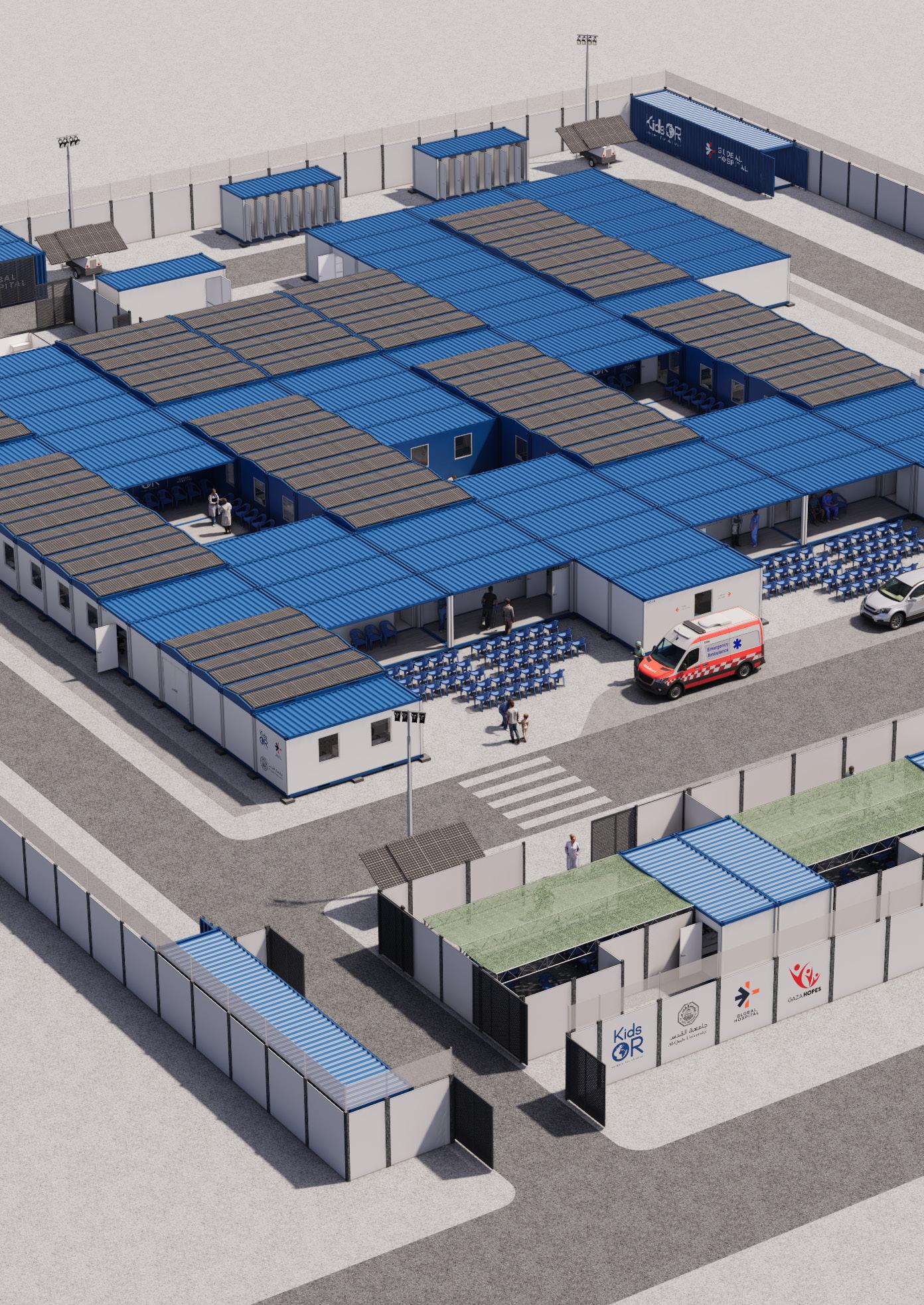
Gaza HOPES is a project designed to support Palestinian healthcare professionals to provide critical care to their communities.
Gaza HOPES – Healthcare for Obstetrics, Paediatrics, Emergency, and Surgical care - will establish a fully equipped, rapidly deployable emergency hospital in Gaza.
This hospital will focus on the most urgent health needs identified by Gaza’s medical leaders themselves: safe maternity care, life-saving paediatric services, emergency medicine, basic surgical care for children, and the treatment of critical conditions like pneumonia, malnutrition, and diarrhoeal disease.
Spanning over 11,000 square metres, the hospital will house operating rooms, paediatric and maternity wards, emergency triage, oral surgery, and outpatient care, alongside essential support services like laboratories, pharmacies, and recovery units. It will be fully self-sufficient, powered by solar energy, generators, desalination units, medical oxygen production, and satellite internet, ensuring uninterrupted care.
A dedicated team of 278 local professionalsdoctors, surgeons, nurses, and support staff - will deliver care to over 8,300 patients every month. Every appointment, operation, and delivery will be carried out by those who know the community best and are committed to its future.
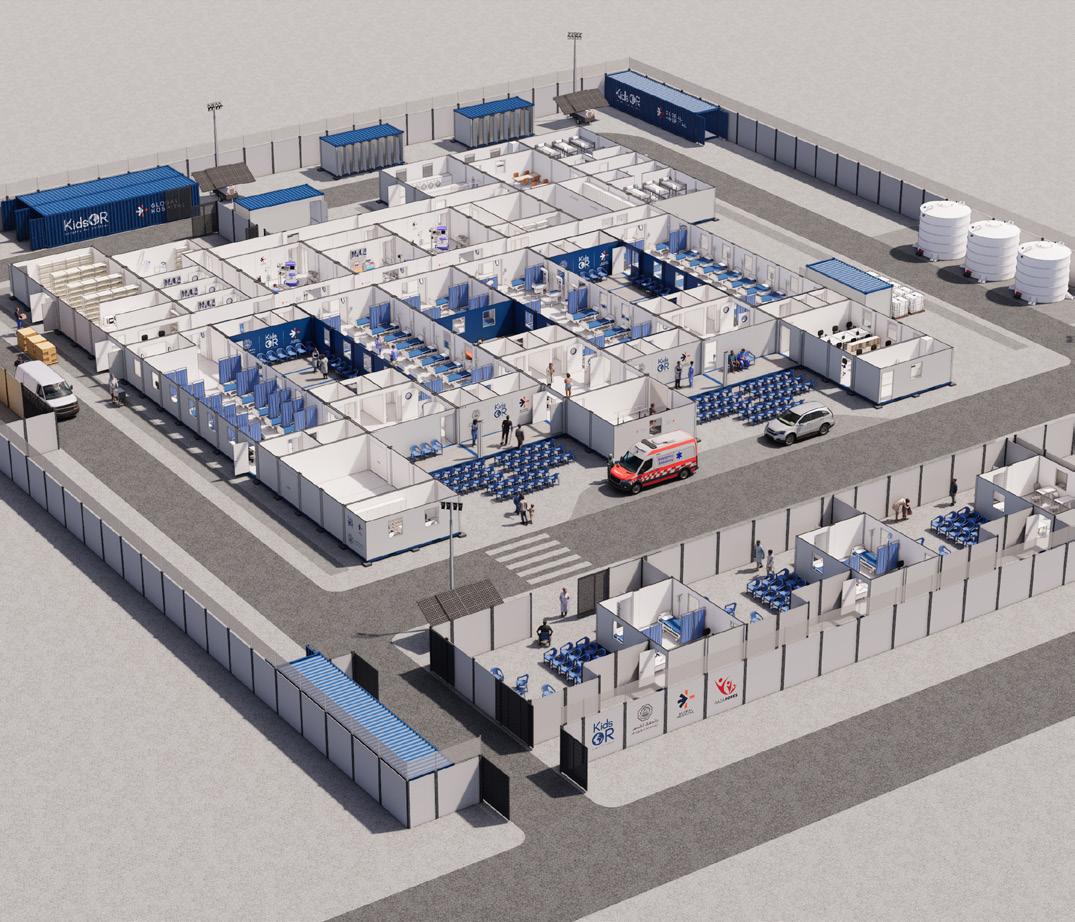
The deployment of the wider Gaza HOPES project is contingent on the official receipt of funds (scheduled to take place in the next 3-5 months), after which it will take approximately 16 weeks for the infrastructure to arrive at the designated staging area, ready for installation. Deployment from the staging area will be triggered once official clearance is granted by the Israeli authorities to cross the border and proceed with setup.
While the project involves complex infrastructure and faces logistical challenges, it does not require a formal ceasefire to move forward. Deployment can begin as soon as border access is approved, ensuring that life-saving care reaches those in need at the earliest possible moment.
To support this process, Kids Operating Room has signed a Memorandum of Understanding with the United Nations Development Programme (UNDP), a key partner in securing the necessary permissions for cross-border access and infrastructure delivery. This collaboration significantly strengthens Gaza HOPES’ operational readiness and international coordination.
Gaza HOPES invests not just in infrastructure, but in people – allowing Gaza’s own healthcare workers to lead, to save lives, and to offer hope in a time of unimaginable hardship. It’s a model of emergency care that is sustainable, locally owned, and built for lasting impact.
In the face of a growing humanitarian emergency in Gaza, local and international partners are joining hands to deliver urgent, life-saving healthcare. Gaza HOPES brings together Al-Quds University, the heart of Palestine’s healthcare system, and Scotland’s Kids Operating Room/Global Hospital, combining local leadership with global operational support to meet the crisis with compassion, expertise, and solidarity.
A Trusted Local Partner: Al-Quds University

Al-Quds University is at the centre of Palestine’s healthcare system, home to the country’s leading medical, dental, and public health schools. Its alumni and faculty form a vital professional network - connecting almost every senior doctor, nurse, surgeon, and public health expert across Gaza and the West Bank.
This trusted network makes Al-Quds uniquely placed to identify urgent healthcare needs and rapidly mobilise qualified, local healthcare professionals to staff the Gaza HOPES emergency hospital. Care will be delivered by those who know their communities best, with services that are locally trusted and culturally appropriate.

A proud Scottish charity, Kids Operating Room has delivered surgical infrastructure in over 100 hospitals across 38 countries, including conflict and disaster-affected regions such as Afghanistan, the Democratic Republic of Congo, Haiti and Somalia.
Unlike short-term mission models, Kids Operating Room focuses on building permanent, locally-led services - providing frontline surgical teams with the tools, infrastructure, and long-term support they need to deliver safe, sustainable care. To date, our work has created the capacity for over 720,700 life-saving operations for children worldwide.
Global Hospital, a healthcare infrastructure company wholly owned by Kids Operating Room, extends this capability further - delivering comprehensive hospital infrastructure projects when needs go beyond paediatric surgery. This operational strength means Gaza HOPES can deliver high-quality, sustainable emergency healthcare at scale.
Operating rooms installed
Scottish Government supported operating rooms in country Plans in development
720,700 38
The Scottish Government and Kids Operating Room share a strong history of partnership, working together to strengthen paediatric surgical care in Malawi, Rwanda, and Zambia. Together, we have delivered seven state-of-the-art paediatric operating rooms, solar-powered 15 surgical facilities, and invested in training local health workers. This collaboration stands as a powerful example of Scotland’s meaningful and sustainable contribution to global health, achieved through partnership with local experts.
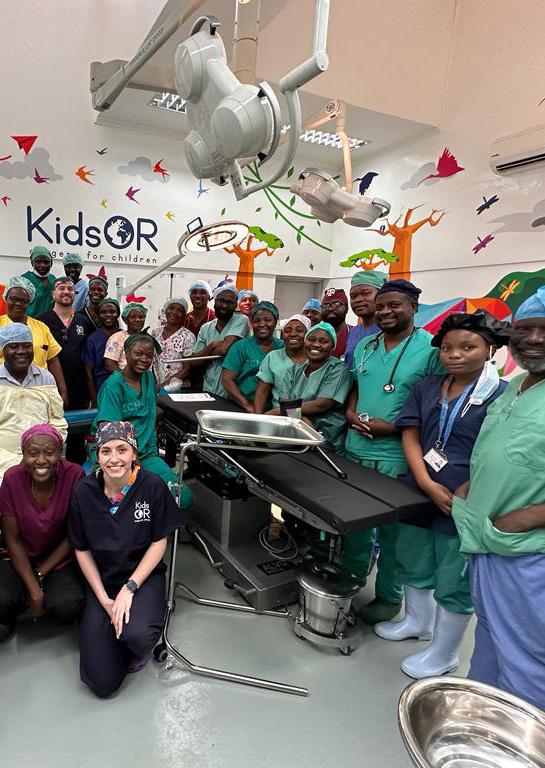
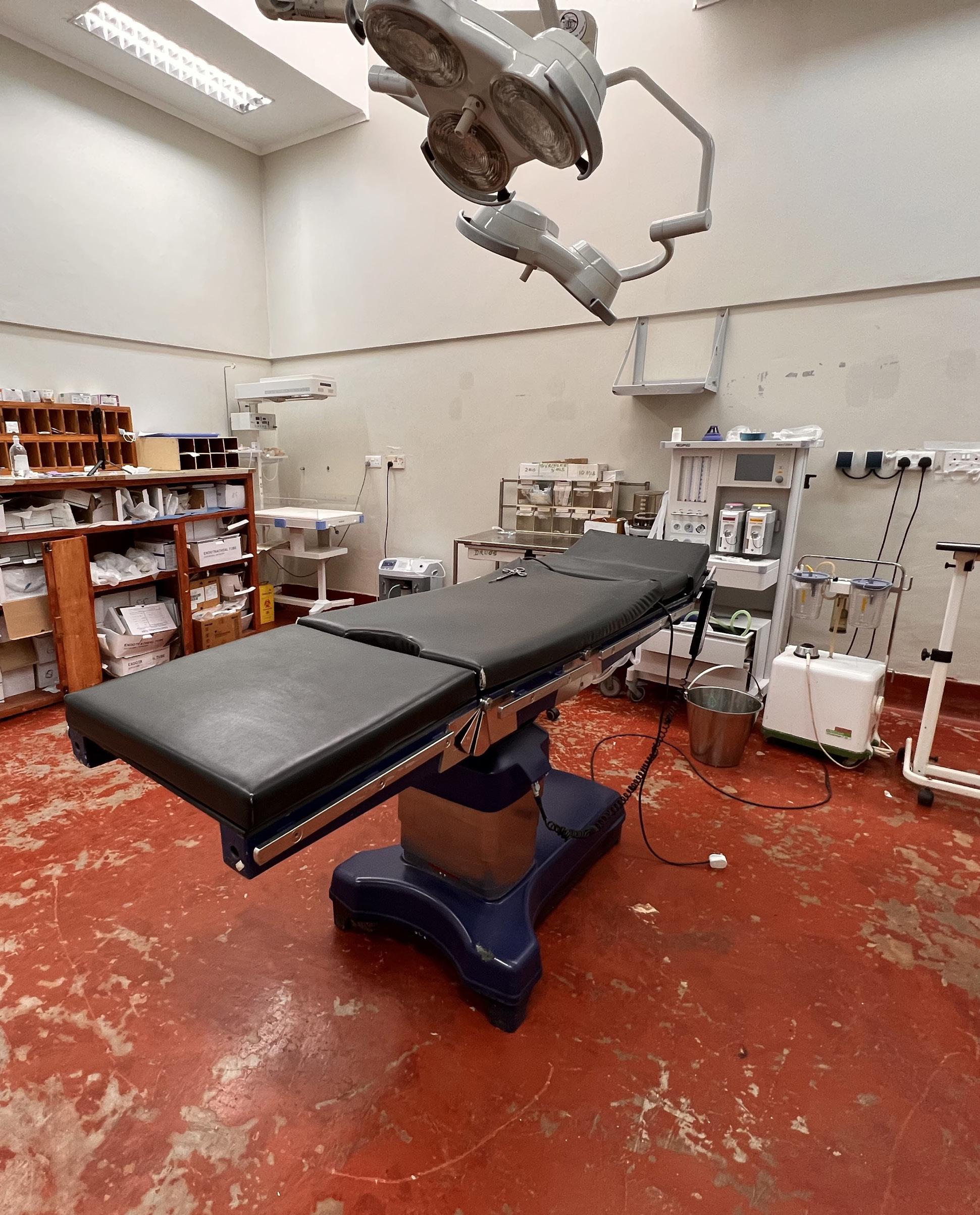

At the heart of our partnership is a mutual belief in the importance of locally led development. In Malawi, Rwanda, and Zambia, projects have been led by the needs and priorities of local healthcare teams - ensuring that the solutions delivered are sustainable and effective. It is with this same action of solidarity and partnership that we now have the opportunity to support healthcare professionals in Gaza.
As the humanitarian crisis in Gaza escalates, Scotland has the opportunity to respond - standing alongside Gaza’s healthcare professionals and their communities to deliver life-saving care in one of the world’s most urgent humanitarian crises. This includes restoring access to safe maternal care for women and girls, placing gender equity and the protection of women’s health at the core of our response.
Kids Operating Room and Al-Quds University have already secured pledges totalling $15 million from a range of funders for the Gaza HOPES emergency hospital. Full details of these pledges can be shared.
This transformational project is ready to launch the moment funds are formally released. To ensure it can be fully operational from day one, we are seeking £400,000 from The Scottish Government to support essential preparation work at a pilot site in Dundee - home to our Global Centre of Operations. This space will not only support the implementation of emergency humanitarian work but also serve as a hub for the training of Scottish healthcare professionals in emergency response, alongside skills sharing with medical teams in Gaza.
This investment will have a catalytic effect. It will unlock and activate the entire $15 million emergency response. The Scottish Government’s support will serve as powerful match funding: a small, strategic contribution that makes possible a far larger, life-saving intervention.
This facility will be at the heart of ensuring the wider project is ready, responsive, and effective by providing:
→ An Operational and Technical Readiness Hub
→ A Live, Remote Troubleshooting and Support Hub
→ A Humanitarian Simulation Site for Scottish Health Professionals
→ Academic Collaboration and Capacity Building
→ Streamlining Scotland’s Collective Response to Gaza
$15m Funding
Unlocked
£400,000
Catalytic Funding

Accessible WC / Changing Room
Maternity Ward
External Waiting
Operational and Technical Readiness
Gaza HOPES: Field Readiness Hub will serve as a fully operational environment where every aspect of the field hospital - from hospital layouts and clinical systems to power, water, waste, and sterilisation infrastructure - will be rigorously tested, refined, and optimised before deployment.
Technical partners - including global engineering and sustainability industry leader Arup - will use the facility to model and stress-test essential systems under realistic conditions, ensuring resilience and readiness in one of the world’s most unstable and resource-limited environments.
By investing in this facility now, the Scottish Government can guarantee that the moment infrastructure can be deployed into Gaza, it will work as efficiently and effectively as possiblesaving lives from day one.
Consultation Rooms / Procedure Rooms / Imaging Rooms
Transitional Nursing Stations
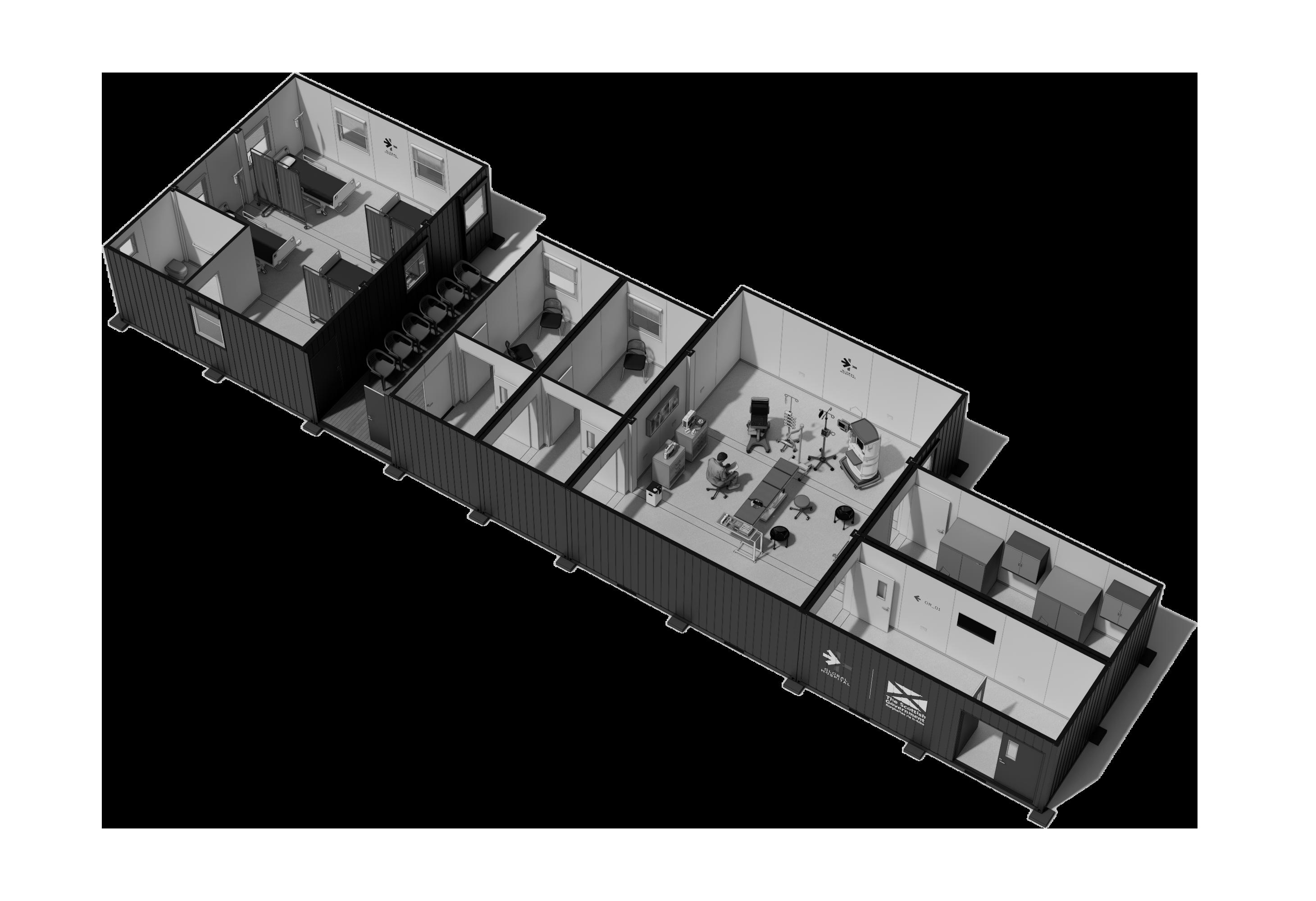
Power Management System
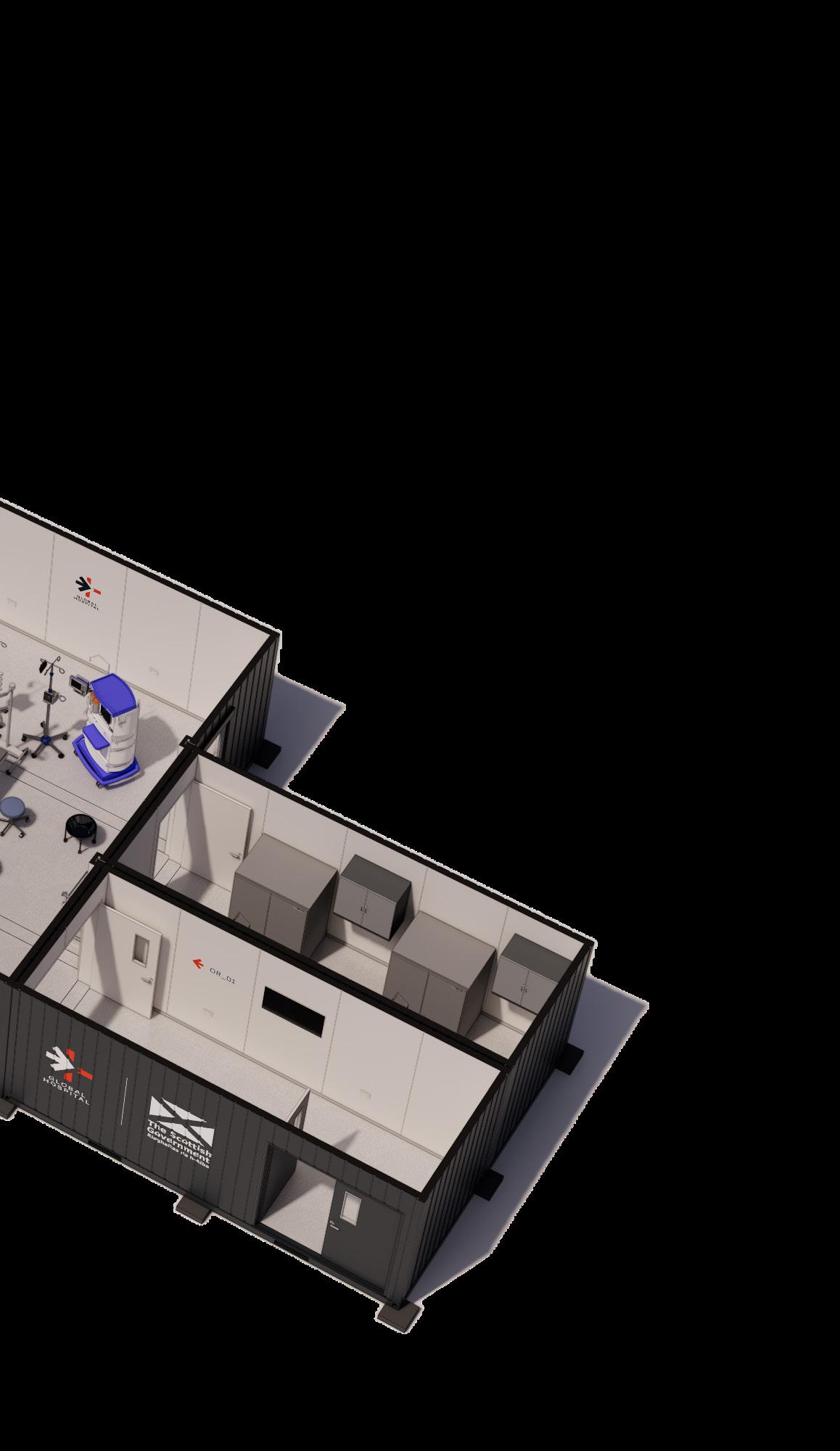
Information Room / Medical Equipment
→ This testing set-up allows us to look at the patient and staff divide as well as the servicing of each space.
→ A facility like this provides an opportunity to train and test equipment in the dimensions of what will be a larger hospital.
→ The hierarchy of spaces replicates the proposal for larger hospitals, which allows us to look at the building fabric to provide efficient cooling and heating.

→ The smaller rooms within the hospital may be used for varied procedures, meeting rooms or consultation. For these spaces to work effectively, they must work ergonomically and have the correct air handling.
→ Our facility can be modified for multiple setups, allowing our staff and visiting clinicians to provide feedback on our proposals.

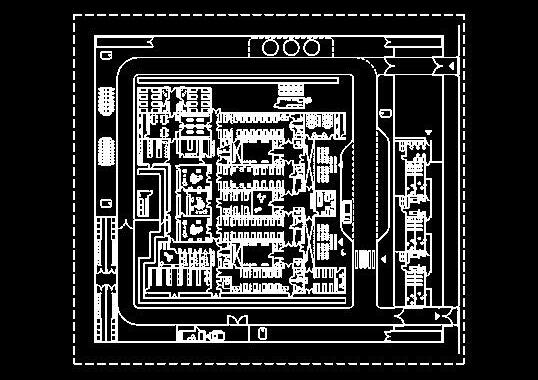
→ Specific areas, such as the operating rooms and procedure rooms, will require HEPA filtered ventilation. We will test different systems for a variety of contexts.
→ Providing a variation of air handling solutions is essential in areas of little or no resource.
→ Where energy is valuable, passive solutions are essential to maintain clean air intake in suitable areas.
→ Our external waiting terraces provides a secure area, and also the opportunity to provide passive cooling.
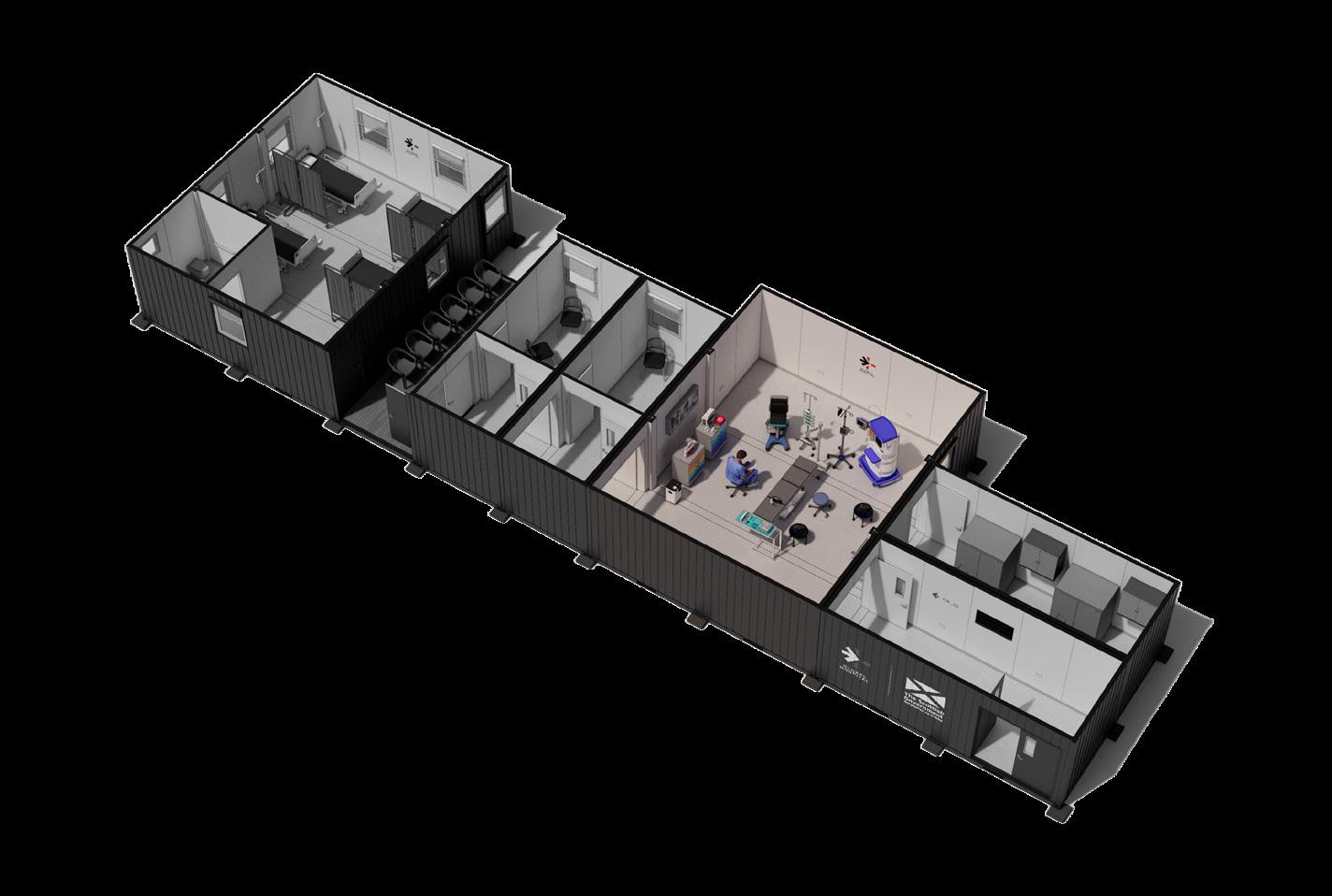



→ We aim to communicate our developments in this testing unit, our input from clinicians and our engineering partnership with ARUP will showcase the ongoing developments in power management, medical equipment and provide training opportunities.

→ The smaller rooms within the hospital may be used for varied procedures, meeting rooms or consultation. For these spaces to work effectively, they must work ergonomically and have the correct air handling.
→ Our facility can be modified for multiple setups, allowing our staff and visiting clinicians to provide feedback on our proposals.
A key role of the Field Readiness Hub will be to provide live, remote technical support and troubleshooting for the Gaza HOPES emergency hospital. When challenges arise, the Hub’s mirrored systems in Scotland will allow for rapid diagnosis and resolution of biomedical, electrical, and infrastructure issues - ensuring uninterrupted care.
The Field Readiness Hub will provide a full “surgical environment” simulation - covering triage facilities, clinics, operating rooms, and postoperative wards - offering training for surgical and emergency care.
As Rodney Mountain, NHS ENT Consultant and Honorary Professor, highlights:
“Throughout the UK there are no learning and skills training facilities that offer wrap-around ‘Surgical Environment’ simulation training for the full range of staff who work in surgical settings.”
Training could be structured at multiple levels:
• Basic: Induction and orientation to perioperative care and surgical environments
• Intermediate: Hands-on introductions to the technologies and processes used by surgeons, scrub teams, anaesthetists, domestic staff, engineers, and estates teams.
• Advanced: Bespoke training in the safe introduction of new technologies, including AI and robotics.
• Team Simulation: Scenario-based exercises focusing on crisis management, communication under pressure, and inter-professional collaboration.
Alongside this, NHS Tayside’s Emergency Medicine service - recognised as the best-performing major emergency department in the UK - will bring specialist expertise to the Hub. As Dr. Barry Klaassen, consultant in Emergency Medicine and Chief Medical Advisor at British Red Cross, notes:
This support is a crucial safety net for both the people of Gaza and the healthcare teams working under extreme conditions. It also sets a new standard for remote humanitarian technical support, highlighting Scotland’s leadership in resilient emergency health responses.
“Our multidisciplinary team (MDT)… would be willing to collaborate and support the field readiness hub: With advice re configurations and departmental design, train advanced Emergency medical skills to teams before deployment, train virtually and share skills with colleagues already in Gaza, [and] help customise specialised courses as per local need/demand.”
This means the Hub will deliver both direct support for Gaza - such as tailored training and live collaboration - and wider capacity-building for other humanitarian contexts. Programmes could include 4-6 advanced emergency medicine courses annually, taught by trainers with over 15 years’ experience in low-resource settings. As Klaassen underlines:
“Many of our MDT have advanced life support teaching experience and we have through 15 years of Scottish Emergency Medicine Malawi project work experience of developing all the above in low-resource settings.”
By combining surgical environment simulation with advanced emergency medicine training, Scotland can provide both an immediate humanitarian intervention for Gaza and a long-term platform to prepare for crises worldwide.
Through partnership with Dundee University, this site will serve as a training ground for rapid construction in conflict and post-conflict settings, offering students invaluable, hands-on experience with modular healthcare infrastructure. It will provide Dundee architecture students with practical exposure to sustainable building systems, integrated energy solutions, and the realities of healthcare architecture in humanitarian contexts.
As Laurence Wood, Lecturer in Architecture and Urban Planning, notes:
“Access to the modular medical test centre will offer Dundee architecture students invaluable hands-on experience with rapid construction techniques and sustainable building systems. Engaging with real-world solar, generator, wind, and gridconnected solutions, as well as controlled heating and ventilation, will deepen their understanding of integrated design.”
This partnership will further enhance community engagement, strengthen interdisciplinary education, and contribute to Scotland’s wider efforts to build expertise in humanitarian emergency response.

→ 8 Fast-packed modules per 1 40’ articulated lorry.
→ Flat-packed packages, including wall, roof and servicing elements assembled on site.

The Field Readiness Hub will act as a unifying platform to coordinate Scotland’s humanitarian response to Gaza. By bringing together NHS Scotland professionals, university departments, diaspora networks, and international partners, the Hub will strengthen collaboration and ensure Scotland’s efforts are skilled, connected, and effective.
Through joint training exercises, mirrored technical support, and shared resources, the Hub will create a coordinated system that bridges local expertise with global humanitarian networks. Dr. Klaassen of the British Red Cross underscores the strength of these international links:
“We [The British Red Cross] have a specialist Middle East team and Director of International BRC operations with whom I can facilitate contact for you. They in turn have contact with Palestinian Red Crescent and Magen David Adom… both provide Humanitarian aid in line with our movement’s fundamental principles.”
This integration, alongside the core partnership with Al Quads University, ensures that training in Scotland is directly matched with exchange and support for peers in Gaza.
With the support and connections of the Scottish Government, the Field Readiness Hub can unite Scotland’s skills and resources to deliver a stronger, more compassionate response, while also standing in solidarity with the people of Gaza.
Beyond Gaza, the Field Readiness Hub will be a long-term asset for Scotland’s emergency preparedness - providing a world-class facility for testing modular healthcare solutions and preparing personnel for future humanitarian crises. Whether for natural disasters or conflict zones, the Hub will prepare Scotland to lead and respond effectively on the global stage.

Modular Design + Construction
→ Designed for rapid construction and long-term installation, these units contain all electrical and water connections.
→ Once erected, these units link together and directly to the grid, solar, wind or generator.

The Gaza HOPES modular framework provides both immediate relief and long-term value:
Addresses today’s most acute needs for paediatric and maternal health. Components can be repurposed as teaching hospitals or primary care centres.

An investment made in Gaza HOPES today delivers both immediate emergency response and long-term healthcare system recovery.
Supports local healthcare professionals with employment now while re-starting the training and development of new healthcare workers in Gaza.
Lays groundwork for rebuilding Gaza’s health sector.
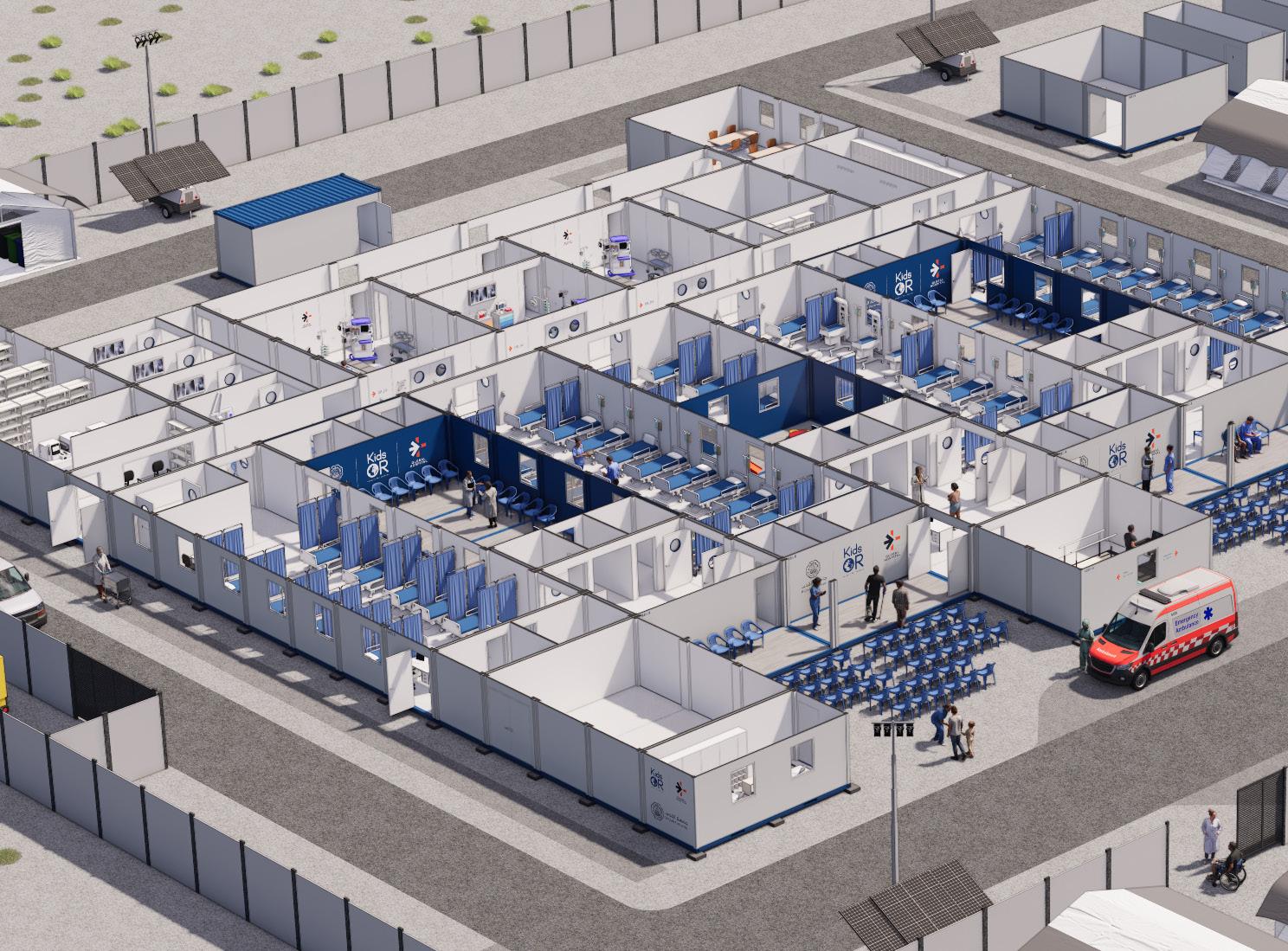
To deliver this project, we have assembled a strong consortium of partners who have already committed significant in-kind contributions. We are now seeking a financial contribution of £400,000 from The Scottish Government to complete the remaining funding required. The table below outlines the total project cost, the contributions already secured, and the amount requested through this proposal.
This £400,000 contribution completes the funding needed to operationalise the Gaza HOPES Field Readiness Hub. It unlocks a fully funded $15 million hospital - ready for deployment the moment a ceasefire is secured. Every pound is leveraged more than 25-fold.
The crisis in Gaza has already gone too far. Every day lost costs lives - mothers giving birth without safe care, children dying from treatable injuries, families forced to grieve. The destruction of Gaza’s health system is one of the gravest humanitarian emergencies of our time, and the need for immediate, life-saving action has never been more urgent.
This is a time for action. The situation in Gaza is urgent, and the need is clear. Gaza HOPES is ready to respond - and with the right support now, we can ensure the hospital is fully prepared to save lives as soon as access is possible.
We invite the Scottish Government to play a leading role in this effort: to act with compassion, to stand with those affected by this crisis, and to help deliver a response that is practical, coordinated, and ready when it is needed most.
The crisis in Gaza is a test of the global health community’s ability to act - and Scotland has the expertise and leadership to make a real difference. By investing in the Gaza HOPES: Field Readiness Hub, the Scottish Government can deliver life-saving care where it’s needed most.
This is a call for catalytic leadership. The Scottish Government’s £400,000 contribution would complete a £1,105,515 test and readiness phase that ensures the full $15 million hospital is operational from day one. It is a rare opportunity to achieve extraordinary leverage and help save thousands of lives.
Should you have any questions or would like any additional information please contact Kids Operating Room’s Fundraising Manager – Charis Phillips.
Charis Phillips, Fundraising Manager Charis@KidsOR.org | +44 (0) 7769 376 372 www.KidsOR.org